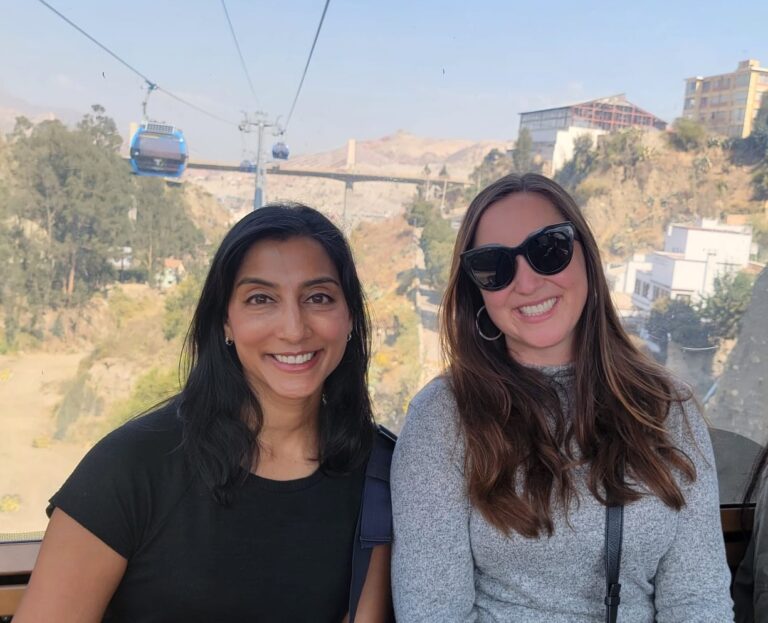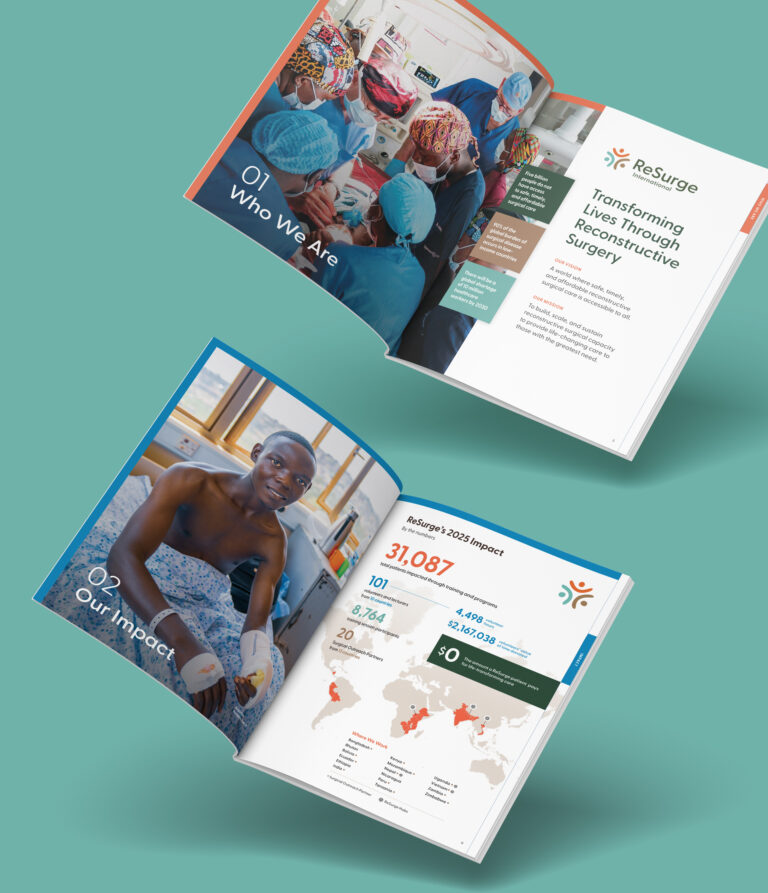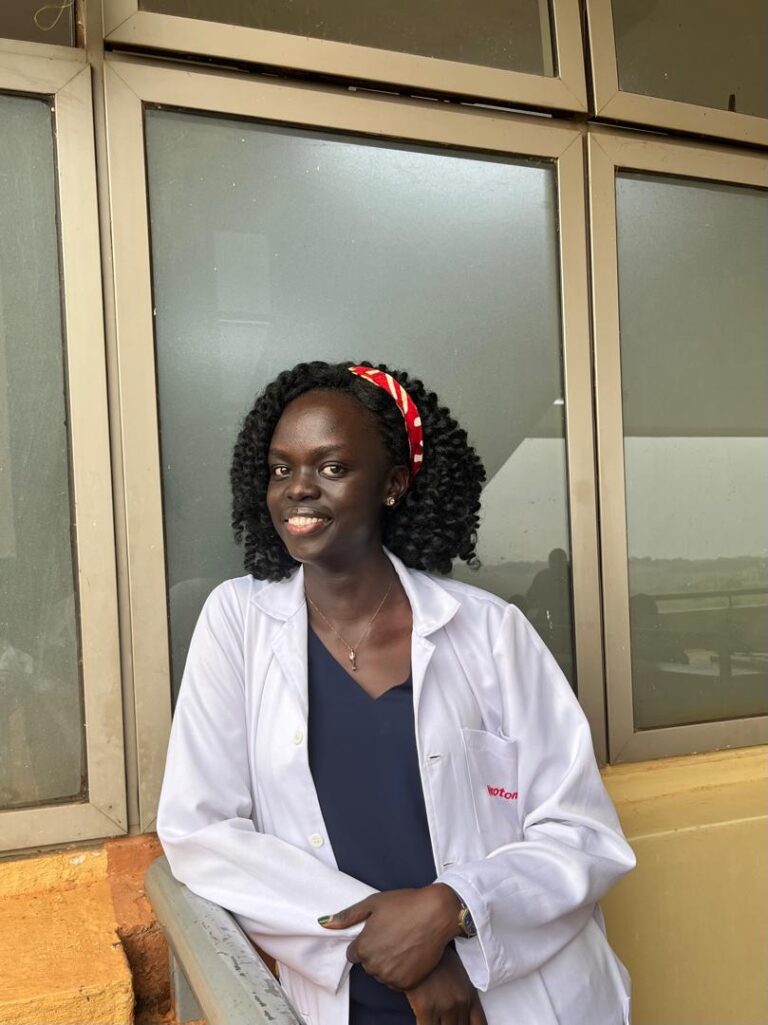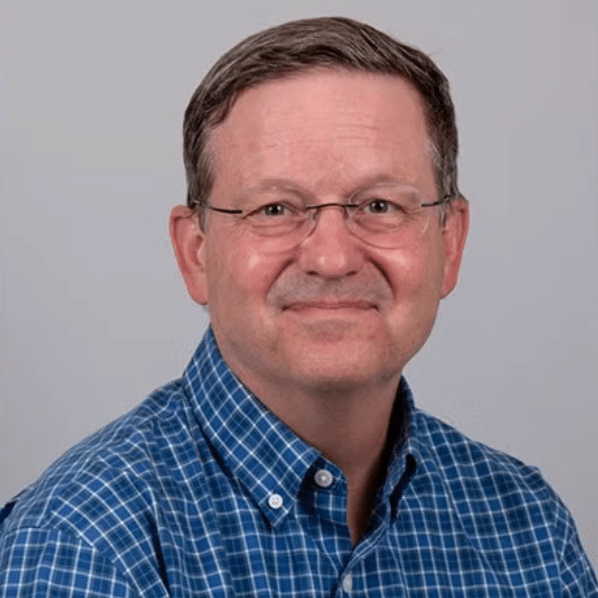In her five years on the ReSurge International Board of Directors, Manisha Shetty Gulati has witnessed the life-changing power of reconstructive surgery firsthand. This year, Manisha traveled with volunteers to Bolivia on her first ReSurge trip as Board Chair. Below, find our interview with Manisha as she reflects on this experience.
You’ve been a member of ReSurge International’s board for five years. What initially drew you to work with ReSurge?
At the time, I had just moved from London to San Francisco. In London, I worked on health issues globally. When my family moved to San Francisco, though I was still working in healthcare more broadly, I started to really miss my work in global public health. I began researching organizations that were impacting global public health initiatives so I could donate some of my time. When I came across ReSurge, I learned about the level of unmet need in global surgery and the difference ReSurge was making. I was just blown away by the people and the organization’s impact, and that’s when I decided to join the board.
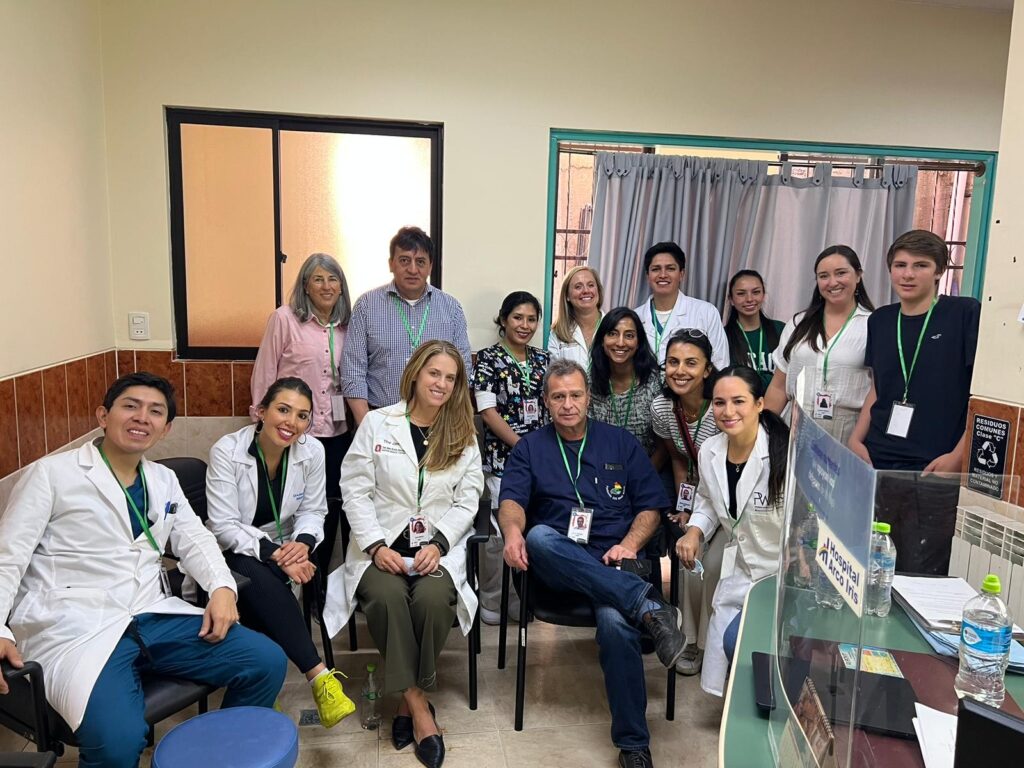
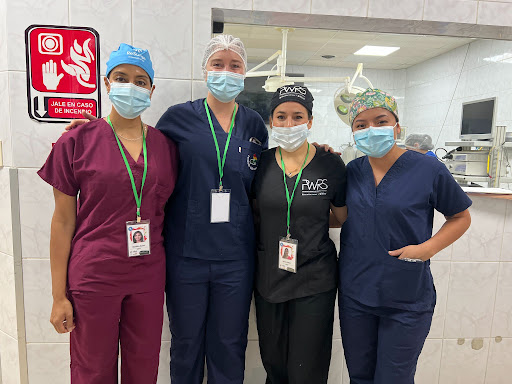
You just returned from a ReSurge trip to Bolivia. What were your major takeaways from your time there?
The trip to Bolivia was a great opportunity to witness ReSurge’s life-changing impact. This trip was largely focused on hand surgery, which was different from previous sites I had been to, and many of the patients were either children who have suffered from brachial plexus from birth or adults who had accidents that led them to lose the use of one or both of their hands. Many of these people had lost the ability to earn a livelihood, to provide for their families. So I was able to really see the impact access to care has on these patients and their communities.
I was also really impressed with the local capacity building. Watching the teaching that’s happening there was incredible – every moment is a teaching moment, and learning is happening at all stages. Sometimes it’s during surgery with 15 or more people gathered around to learn. Other times, it’s during physical therapy and local therapists are learning to create thermoplastic splints or provide other care. That local team will then go and replicate what they’ve learned over and over again, for hundreds of patients. The multiplier effect of this work is amazing.
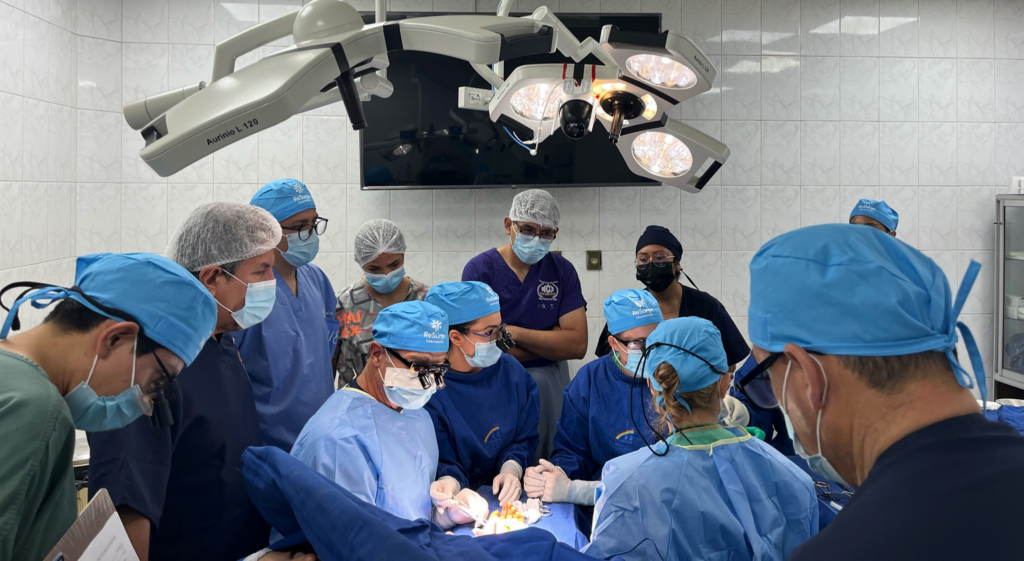
You said this trip was largely focused on hand care. What did you notice about the procedures and treatments that were delivered?
I got to see how ReSurge really emphasizes the quality of care these patients receive. Dr. Amy Moore, who came from Ohio State, is a world leader in peripheral nerve surgery. The techniques that she was teaching to restore arm and hand function are pioneering and best-in-class. This was true for all the volunteers, who came from different parts of the country to care for patients and teach. The patients that are treated through ReSurge aren’t just getting a baseline type of care. They are getting the highest quality of care possible that is giving them their lives back and allowing them to flourish.
I’m just constantly struck by the level of the quality and commitment that ReSurge brings, and of course teaching the local teams and the Pioneering Women in Reconstructive Surgery (PWRS) surgeons to do the same makes such a difference for future patients. The care these patients are receiving is unparalleled.
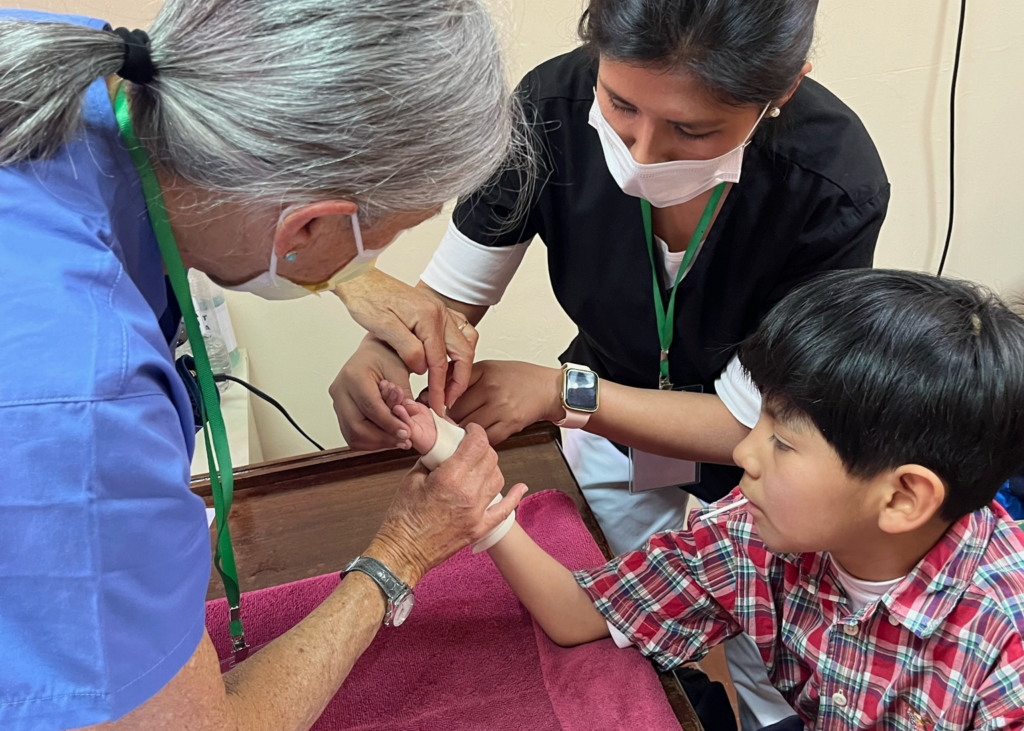
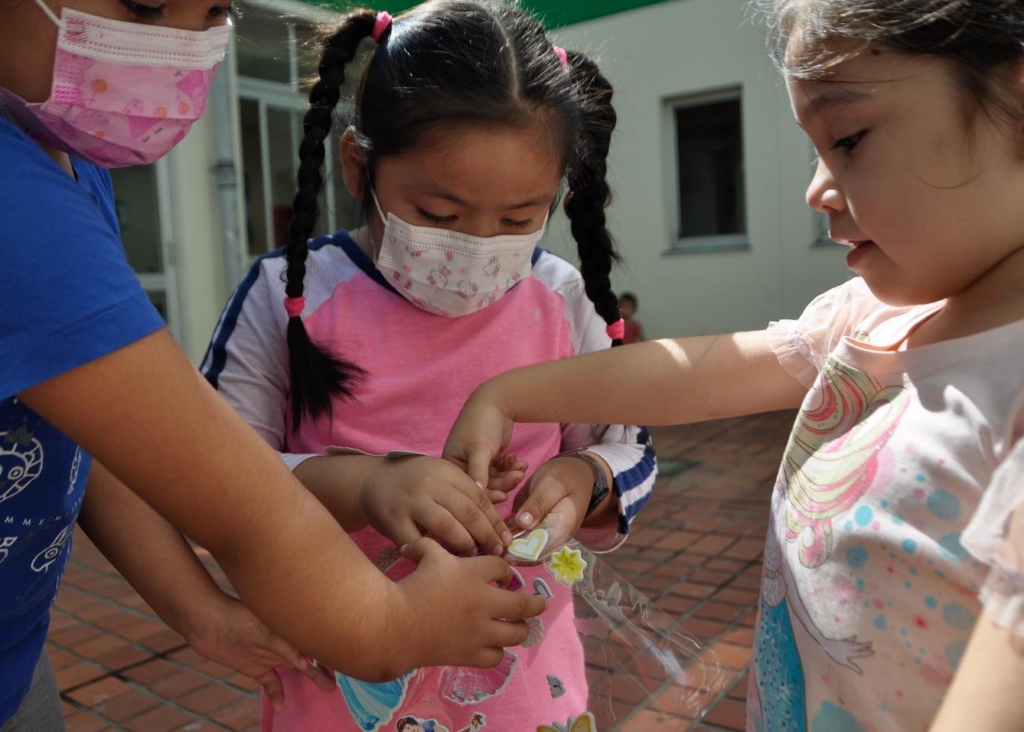
Is there anything else you’d like to share about this trip?
As always, I was just amazed by the commitment of ReSurge volunteers. The team from the U.S. who gave up their free time, sacrificed time with their kids, etc., to travel to do this work — they’re just incredible. The local team led by Dr. Jorge Terrazas was fantastic and so committed to the patients. Dr. Terrazas is also leveraging local partnerships in Bolivia to further increase the impact, particularly with Banco Mercantil Santa Cruz, who provided translators and hosted us locally.
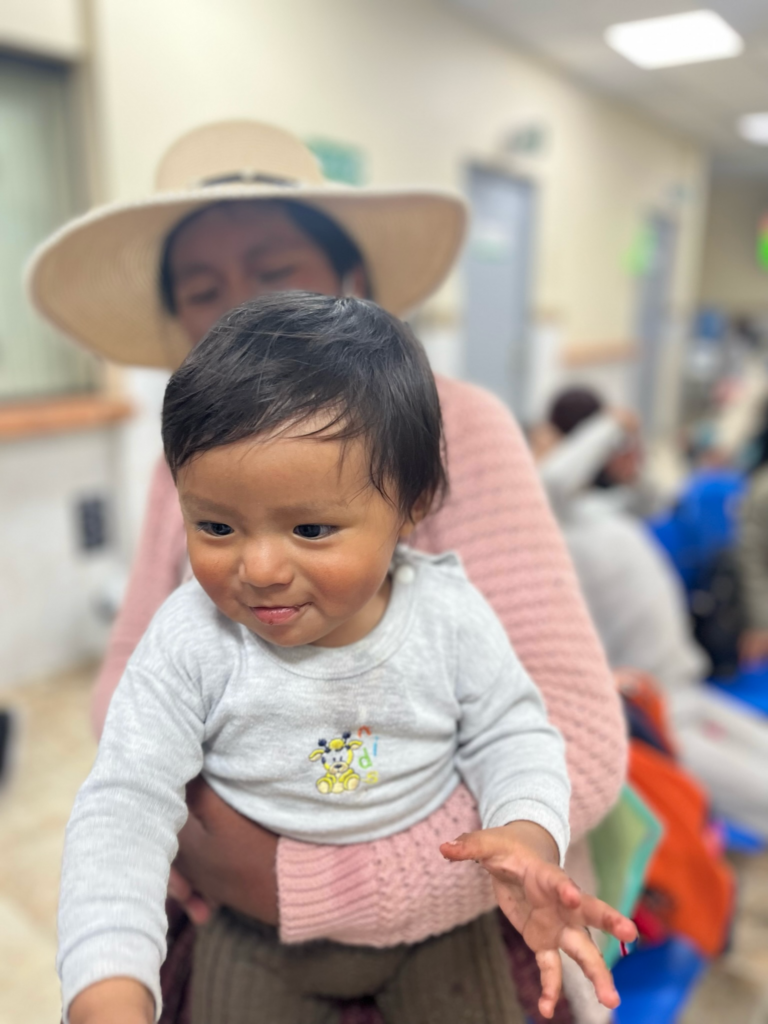
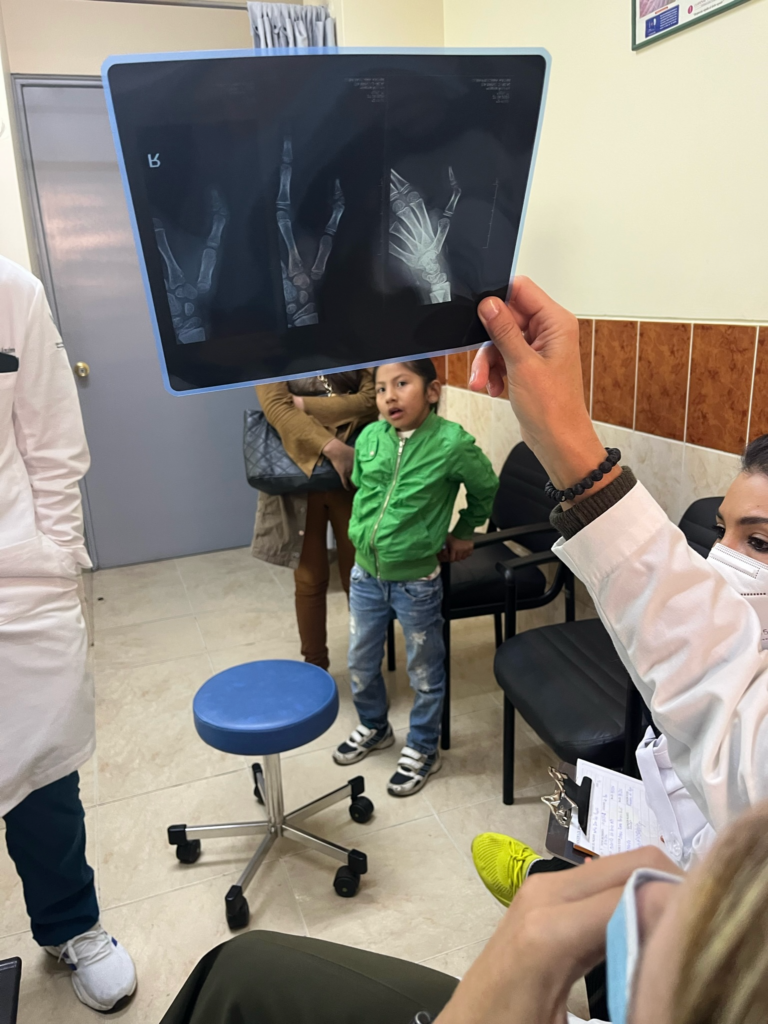
Was there a particular patient whose story you found especially moving?
One child who was in the hospital had been walking with his sheep when an electrical pole fell onto him and severely burned one side of his body. He had been living in the hospital for months; his arm was badly damaged, and one of the surgeries they performed while I was there was to help him regain use of that arm and go to school. When we were talking with him, someone asked him what he wanted to be when he grew up. He told us he wanted to be a surgeon. When we asked him why, he said simply “because they save lives”.
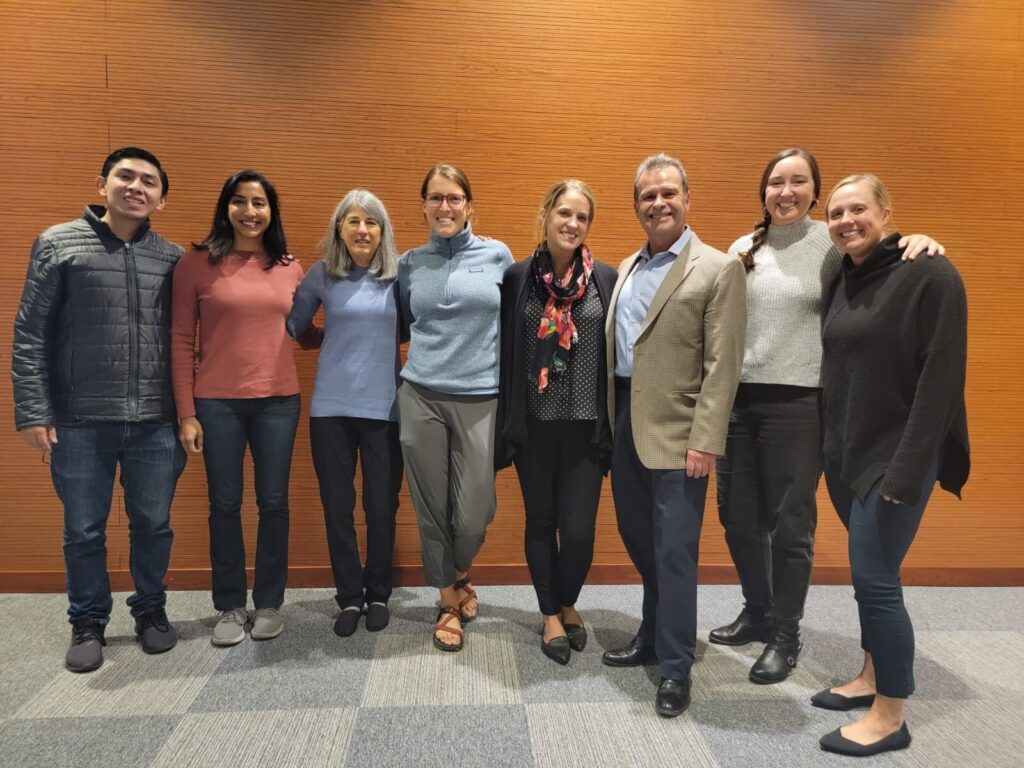
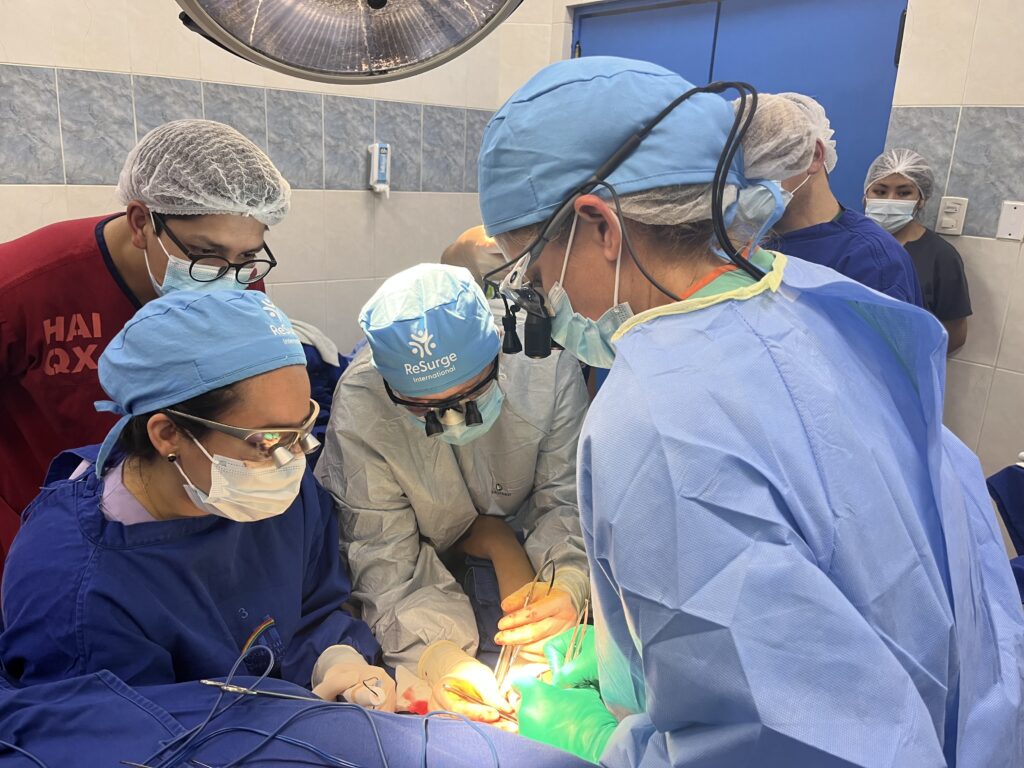
What do you wish more people knew about global reconstructive surgery?
I wish more people understood the scope of the need. Think about the level of care so many of us take for granted — procedures following childbirth, cancer treatment, trauma care for accidents, etc. Five billion people in the world do not have access to the same types of surgical care that we may not think twice about. When people don’t have access to these types of care, there are so many cascading effects to their livelihoods and their families. These are really universal experiences. They happen everywhere, but the difference is who has access to care and who doesn’t.
I’d also like for more people to understand the multidisciplinary aspect of this work. It’s not just the surgeons — nurses, speech therapists, physical therapists, and so many others contribute to the impact of our work. None of this would be possible without them.
What would you tell someone considering giving to ReSurge?
I’d stress to them how much ReSurge is able to do with each donation. It’s important to remember that we aren’t just flying into other countries, doing surgeries, and leaving. We’re training people who are then going on to train other people. We’re building local capacity. That multiplies the impact — thanks to this work, patients in these regions will have access to the care they need long after the ReSurge teams leave. Each ReSurge trained surgeon will go on to treat an estimated 9,000 patients over the span of their career, and will train others to do the same. Last year we trained 3,200 medical professionals around the world with hands-on and virtual education. A donation to ReSurge can change so many lives.
ReSurge seeks to touch the lives of those in need of surgical treatment worldwide and grow sustainable systems for local surgical teams in low-income countries. But we can’t do it without your help. Every donation to ReSurge changes lives.

